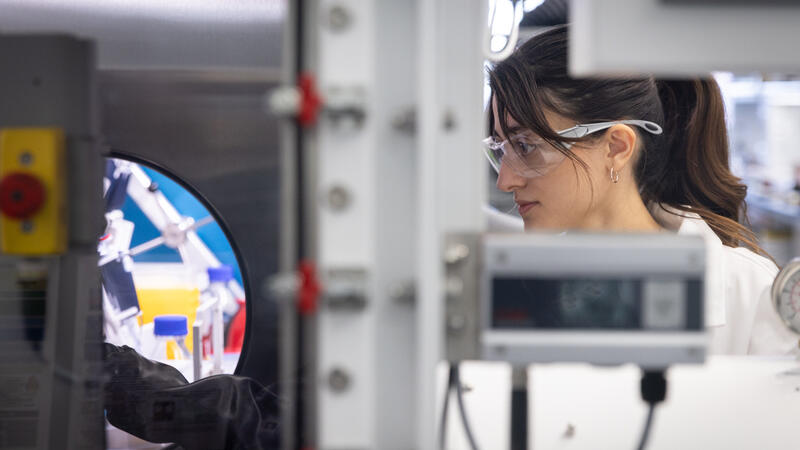News
Sustainable Biomass Conversion
Autonomous lab accelerates discoveries to harness power of microbes
An autonomous experimentation platform at the Great Lakes Bioenergy Research Center is poised to accelerate discoveries that will harness the power of microbes to advance U.S. leadership in the developing bioeconomy. With the ability to design and run multiple concurrent experiments, Proteus expands the scope and pace of exploration, potentially increasing the rate of discovery.
As the climate warms, many scientists and farmers have worried about how rising temperatures will affect agricultural systems and crop yields. Warmer air may increase evaporation and water loss from plants. This has led to concerns that crops will require more water—either from precipitation or irrigation—in a warmer future.
Our graduate students and postdoctoral researchers play an enormous role in the transition to a sustainable, resilient, and affordable energy future that is centered on social and economic equality. From lab experiments to field work to classrooms, these leaders of today and tomorrow are our catalysts for energy discovery.
Cryo-EM, an advanced microscopy technique that utilizes extremely cold temperatures and electron beams to illuminate the structures of some of the tiniest building blocks of life, has come to UW after years of investment — and it could help CALS scientists reach new frontiers in the biosciences
Yiying Xiong, new Great Lakes Bioenergy Research Center associate director, has turned this deep connection with the power and potential of renewable energy into more than 20 years of experience in leadership, management, and business development in this area.
Our graduate students and postdoctoral researchers play an enormous role in the transition to a sustainable, resilient, and affordable energy future that is centered on social and economic equality. From lab experiments to field work to classrooms, these leaders of today and tomorrow are our catalysts for energy discovery. In this new series, we learn more about what inspired these talented researchers, what brought them to their field of study, and the questions that drive their work at GLBRC.
GLBRC researcher and University of Wisconsin–Madison biochemistry assistant professor Vatsan Raman describes a new computation-guided method to optimize the design of split protein systems that can be used to monitor and regulate biological activity.
Combining field data with a reference switchgrass genome, a multi-institutional research team has been able to associate climate adaptations with switchgrass biology, information that could be useful toward the DOE’s interest in harnessing the crop toward producing sustainable alternative fuels.
Kiley was nominated for distinguished contributions to understanding mechanisms that regulate E. coli’s lifestyle in different oxygen environments, specifically how transcription factors exploit iron-sulfur metal centers for oxygen responses.
Landis was nominated for distinguished contributions to the field of ecology, particularly for uncovering the role of landscape structure in regulating insect biodiversity and ecosystem services.
Some microbes are skilled at turning plants into biofuels and useful chemicals. Persuade them to do this efficiently enough, and you have the foundation of a bioenergy refinery that generates fuels and chemicals from renewable sources rather than fossil fuels.





